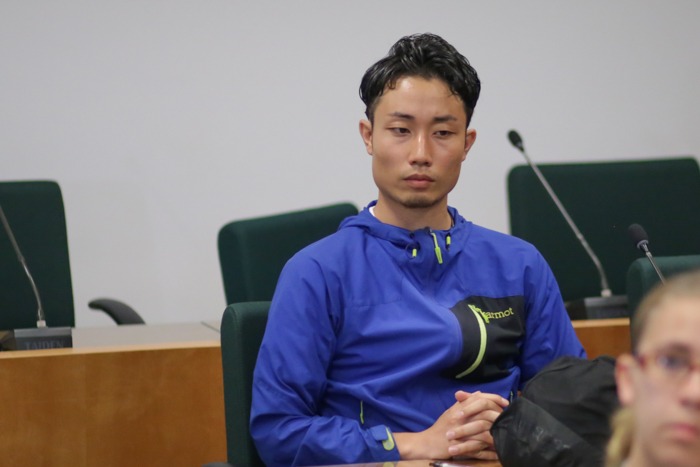Brasilia (01/30/2019) – A group of undergraduate exchange students from the universities of Tsukuba and Tokyo (Japan), Ohio State University (United States), and the University of Sao Paulo’s Luiz de Queiroz College of Agriculture (Esalq) visited the headquarters of the Brazilian Confederation of Agriculture and Livestock (CNA), home of the Brazilian farmers.

Students from Japan, United States and Sao Paulo visit Brazilian Farmers’ home in Brasilia
In a morning of debates and presentations, students learned about international trade, agricultural production and the projects carried out by CNA and by the National Rural Learning Services (Senar).
According to Thiago Masson, a senior advisor at CNA’s International Relations Office, “the students were particularly interested in hearing about our work agenda and initiatives to represent and respond to the needs and expectations of Brazilian farmers and ranchers. They also asked about Senar’s social inclusion and rural development programs.”
The visit was part of an exchange program that exists for nearly 20 years between the universities. In addition to the meeting at CNA, students went on technical visits to producing regions and took classes on the Brazilian economy, agriculture and culture.
The program’s agenda started in Piracicaba, the city where Esalq is located, in the state of São Paulo. They then went on to the states of Goias and Minas Gerais, where they visited rural properties and retail stores, met with agricultural inputs companies, food processing and logistics specialists.
According to professor Ricardo Shirota from Esalq, the main goal of the program is to show the reality of Brazil’s productive sector. “They will return to their countries with a first-hand experience and knowledge of Brazil. This can benefit the agricultural sector, but also Brazil as a whole, with closer international relations and new business partnership opportunities ” he said.
 Professor Shirota from Esalq highlights the benefits of the exchange program
Professor Shirota from Esalq highlights the benefits of the exchange program
To Todd Peterson, a student at Ohio State University, Brazil is a country with sustainable agricultural practices that respects the environment. “It was very interesting to see how Brazilian farmers respect the environment and how they are taking care of future generations.”
 Student mentioned that initiatives of entities like CNA are crucial for the improvement of rural lives and communities
Student mentioned that initiatives of entities like CNA are crucial for the improvement of rural lives and communities
In the view of Tomoki Takahashi, from the University of Tsukuba, it was important to see the Brazilian production closely, since great part of the chicken meat consumed in Japan comes from Brazil. “Japan depends heavily on imports of food. For this reason, it was a great opportunity to learn more about international trade of food and agricultural products” he said.
 Tomoki stressed the importance of knowing the agricultural reality in one of Japan’s main food suppliers
Tomoki stressed the importance of knowing the agricultural reality in one of Japan’s main food suppliers
Leticia Carvalho, a student of Agricultural Sciences at Esalq, said that the most important thing for her is to be able to exchange experiences, besides practicing English and visiting agricultural companies. “I met companies that I usually don’t get to meet, which gives me better access to the job market, for after my graduation. It’s very interesting!”
Thiago Masson emphasized the importance of exchanging knowledge with other cultures. According to him, Ohio State University is a world-renowned school, reference in fields of rural economy and agricultural sciences.
“In the future these young people will be working in governments, international organizations or private companies out there. This is a very important channel to promote the positive image of Brazilian agriculture, as well as the socio-environmental aspects of sustainability. We hope the students will be able to propagate the good work of Brazilian farmers in their own families, communities and countries.”